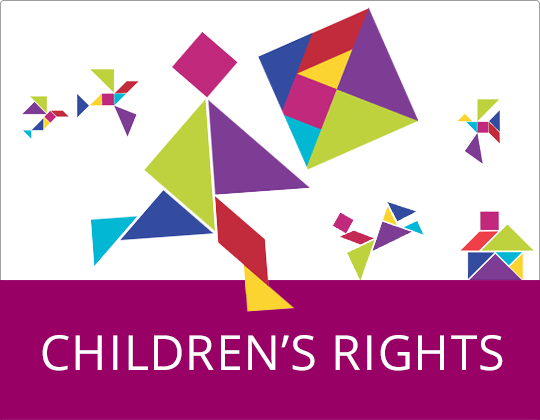A Conference titled “Towards Barnahus Spain Phase II” took place in Madrid on 25 October. This event marked the culmination of the Council of Europe – European Union DG Reform joint project “Strengthening child-friendly justice through effective cooperation and coordination among different Barnahus-type services in the regions of Spain", implemented in collaboration with the Spanish Ministry of Youth and Children. The Barnahus (Children’s House in Icelandic) is the leading European response model to child sexual abuse aimed at coordinating parallel criminal and child welfare investigations, with all relevant services under one roof, to prevent secondary victimisation of children.
The objectives of the event were to showcase project’s main achievements in strengthening the protection of child victims of sexual violence and upholding the rights of child, exchange views particularly on its implementation at the regional level, and assess the actions planned in Phase II of the project.
The conference was opened by Sira Rego, Minister of Youth and Children of Spain, emphasising that “the Barnahus model is a powerful tool, but it will only work if we remain steadfast in our commitment.” She added, “We will not stop working until every child can live without fear, secure in the knowledge that they will find a system that protects them, listens to them and respects them.”
Protecting and promoting the rights of the child, including combating violence against children and ensuring child-friendly justice, are shared values and core objectives of both the Council of Europe and the European Union. We work together to expand the Barnahus model in as many member states as possible. “The project that we are closing today is at the forefront of this action. It is a success story and shows what we can achieve with hard work, sincere cooperation and good will”, said Nathalie Berger, Director for Support to Member States’ Reforms, DG REFORM, European Commission in her opening remarks.
The Council of Europe and DG REFORM have been supporting several members states (Slovenia, Finland, Ireland and Croatia) in establishing and implementing the Barnahus model. Spain is, however, the first decentralised country in which the Barnahus project is implemented, where relevant responsibilities are delegated to 19 autonomous communities and cities. “Although coordination at national and regional level has definitively been a challenge, the results achieved in two years are spectacular. Regions have actively participated during the project implementation, and most strategic documents have a regional Annex with concrete regional actions”, underlined Roberto Olla, Head of Human Dignity and Gender Equality Department of the Council of Europe.
Over the last 28 months, the project has contributed to improving the legislative and policy framework to implement the Barnahus model in Spain and its regions, while also strengthening capacities of professionals working with children. As a result, National and Regional Roadmaps to implement the Barnahus model and the Communication Guide have been developed and presented at the conference.
Children’s opinions were incorporated in these key strategic documents through a consultation process with the National Council for Child Participation (CEPIA). Additionally, two girls participated in the conference, sharing insights on the aim, materials and conclusions of the process, while an illustrator drew live a child-friendly visual map summarising the child participation process.
Lastly, the Conference generated momentum to reaffirm Spain’s commitment to continue implementing the project results through Phase II in order to further strengthen the protection of child victims and witnesses of sexual violence and to uphold the rights of the child. From November 2024 to April 2027, Phase II of the project will support the Spanish Ministry of Youth and Childhood and the Ministry of Presidency, Justice and Relations with the Parliament in carrying out relevant actions outlined in the national and regional roadmaps and the Communication Guide. It will also strengthen the collaboration among justice operators and other existing services for child victims of sexual violence and support the implementation of Recommendation (2023)8 of the Committee of Ministers on strengthening reporting systems on violence against children.
Over 150 participants, including high-level national and regional authorities and civil servants, the office of the Ombudsperson, civil society representatives and national and international children rights’ experts participated in the conference with many more following it online.
The conference coincided with the anniversary of opening for signature of the Council of Europe Convention on the Protection of Children against Sexual Exploitation and Sexual Abuse in Lanzarote on 25 October 2007. In 2015, the Lanzarote Committee recognised the Barnahus model as a promising practice for protecting child victims and witnesses of sexual violence.




